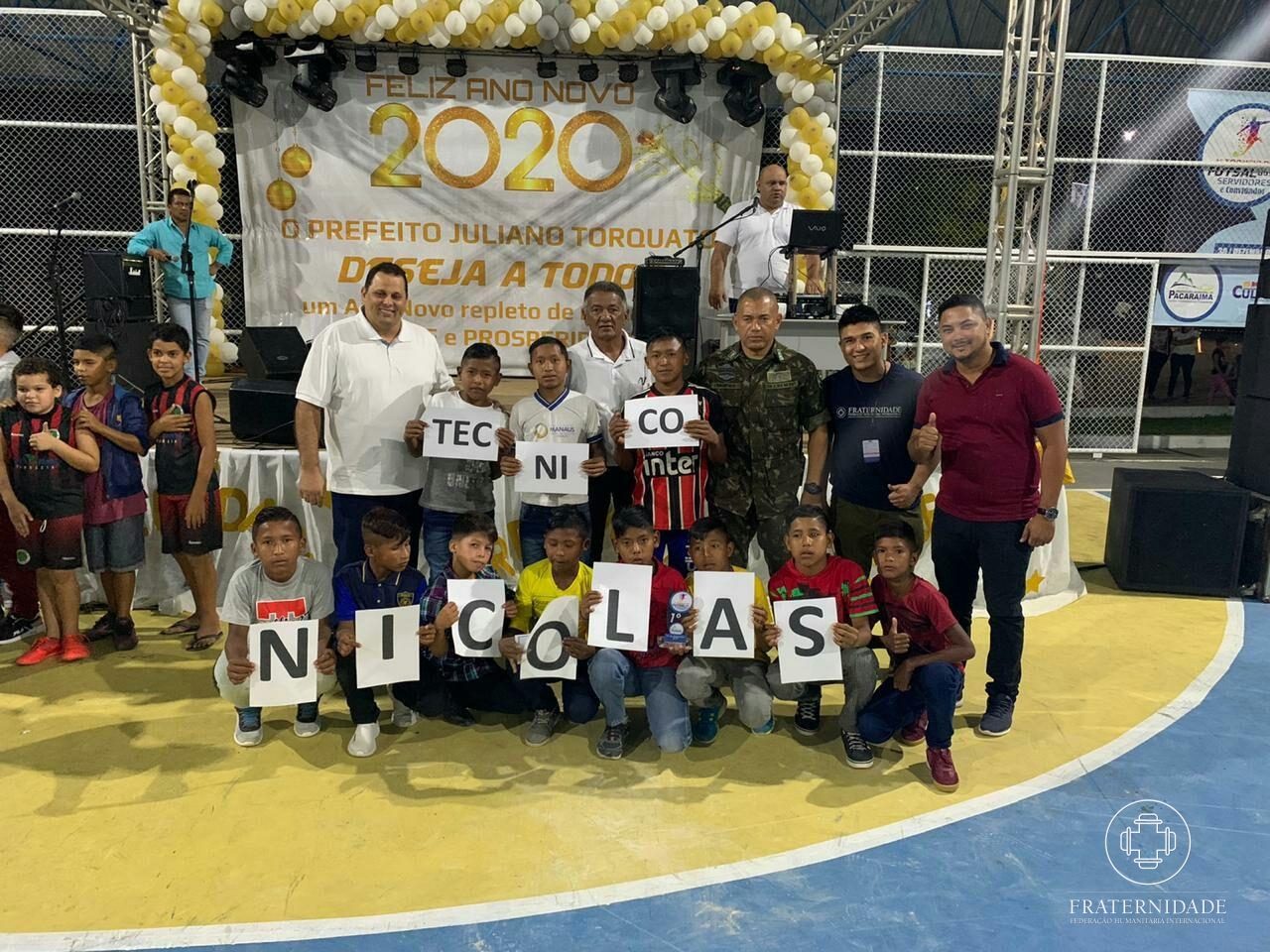In the context of immigration and sanctuary, such as is experienced at the border of Venezuela with Brazil, adaptation to a new life, new customs, new language is the daily reality the Warao natives have to face, coming from the Orinoco River Basin – State of Amacuro.
Living in a temporary shelter, which over time seems to have become more permanent because of the lack of perspective for resolving the conflict that triggered the immigration, makes the shelters seeking to rescue and adapt the habits and traditions the Warao practiced in their communities of origin, some original and others typical of the mixture that over the years they have been doing with non-indigenous people.
With the arrival of that tribe, it was later perceived that children, youths, and the community as a whole had adopted sports as a way of channeling the energy that the indigenous consciousness possesses and the fact that they live in “communities” favors the permanent social interaction of its members.
Volleyball and soccer are the sports that they practice with great resolve and effort. They excel in team playing and a good physical capacity, which they have by nature. It was this skill, which they demonstrated in the life in the shelter, that caused the Fraternity – International Humanitarian Federation (FIHF) to reinforce and encourage this good practice, making the daily living in the shelters healthier and more participatory.
The Fraternity – International Humanitarian Federation (FIHF) is the administrator of the indigenous shelters of Janokoida (Pacaraima) and Pintolândia (Boa Vista) and acts in partnership with the United Nations High Commissioner for Refugees (UNHCR) in the Acolhida (Welcome) Operation, promoted by the Federal Government in response to the Venezuelan migratory crisis. Sports are an instrument used in its humanitarian missions to develop education in emergency situations.
April 6 was chosen by the UN and the International Olympic Committee (IOC) as the International Day of Sports because they understood that this could be a universal tool for fostering peace, tolerance, social development, and a healthy lifestyle, values that within the context of a shelter are indispensable for the health of the community in the shelter.
At the end of 2019, as a result of the project implemented by the collaborators of the Humanitarian Fraternidade (FIHF), the principal purpose of which is the social integration with the Brazilian community of the shelter, the refugee indigenous child soccer team of the Janokoida shelter participated in the 1st Soccer Tournament organized by the Municipality of Pacaraima and won first place.
Also a result of this same program and striving for positive and constructive interactions with the local indigenous communities, the children and youths of the shelter participated in a sporting and recreational program in the Community of Macuxi Bananal, experiencing a day of sporting practice and a peaceful coexistence between both ethnic groups.
Nicolas, a volunteer of theFraternity – International Humanitarian Federation (FIHF) and coordinator of the sporting project, emphasized that “what was most important in this project was to remove the children and the youths from idleness and the risk of them becoming involved in addictions that can occur within a context of vulnerability. Through a positive group practice, it is possible to generate unity among the different groups and transform the stress into values such as camaraderie and respect, strengthening the individuals and the community in its physical, social, and spiritual aspects.”
In the current situation of the Pandemic caused by the COVID-19, the measures of social isolation caused 509 natives to remain in the Janokoida shelter. Through the initiative of the community itself and its leadership, called “Aidamos” (chiefs), they organized female and male championships for soccer and volleyball, and called these events “Stay-at-Home,” a name that alluded to the request made by the governmental authorities to the Brazilian population as a preventative measure for contagion of the COVID-19.
At this time, for the shelter natives, the name of the shelter in the Warao language has taken on an even stronger connotation, because “Janokoida” means “Large House” (janoko=house\ida-large), a house that shelters them and allows them to continue their journey full of challenges and changes. The Fraternity – International Humanitarian Federation (FIHF) continues to walk alongside these immigrant people.













